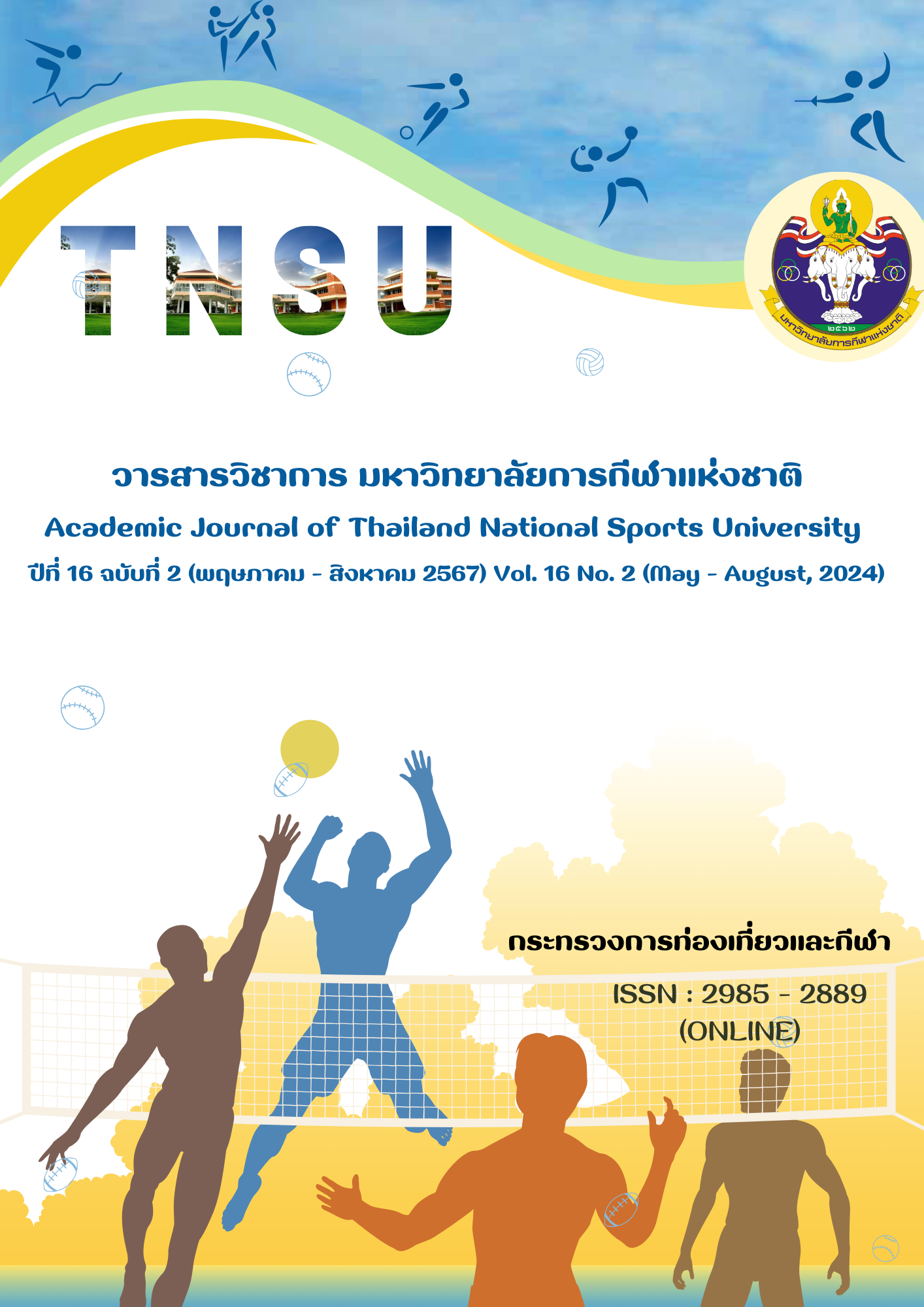SPORTS MANAGEMENT POLICY OF THAILAND BODYBUILDING AND PHYSIQUE SPORTS ASSOCIATION
Main Article Content
Abstract
This research objectives aimed: (1) to study the factors that affect the success of sports management in bodybuilding and fitness. (2) Investigate the problems, obstacles, and factors affecting success in bodybuilding and fitness sports management. (3) To examine the guidelines for developing sports management policies of the Bodybuilding and Fitness Sports Association of Thailand (TBPA). Is qualitative research, employing in-depth interviews with a total of 30 keys informants, consist of 5 sports management professionals and personnel holding executive positions within the TBPA, 10 personnel or officers affiliated with the association, including 11 people of ordinary members and 4 people of extraordinary members. The study tool was an in-depth interview. Data was analyzed by data reduction, participatory observation, and descriptive description to analyze the collected data. The results of the study were : (1) Factors affecting success in bodybuilding and fitness sports management included the formulation of sports management policies with clear goals, objectives, and operational guidelines that enable the practice and achievement of results in line with the policy of the Sports Authority of Thailand (SAT). Additionally, the utilization of all media channels to disseminate knowledge about the sport of bodybuilding and the association's activities, as well as the provision of support for training facilities, sports equipment, and food. (2) Problems and obstacles in implementing the sports management policy of the TBPA there are insufficient budgets and delays. Membership camps, or some groups of general people do not understand the criteria for selecting national team athletes. (3) Based on the study's findings, the following guidelines are proposed for the development of sports management policies within the TBPA to restructure the association, select a competent and visionary committee. Come to set policies, plan, manage, supervise, monitor, evaluate and improve plans. The goal is to create famous athletes to compete in world competitions and to provide budget to support the association's activities in training and sending athletes to compete.
Article Details

This work is licensed under a Creative Commons Attribution-NonCommercial-NoDerivatives 4.0 International License.
The published article is a copyright of the Academic Journal of Thailand National Sports University. The passage appeared in each article in this academic journal is a perspective of each author which is not related to the journal. Each author is required to be responsible for all components of his/her own article. If there are any mistakes, each author must be responsible for those mistakes on his/her own.
References
Bodybuilding and Fitness Sports Association of Thailand. (2021). History of bodybuilding and fitness sports association nest of Thailand. Retrieved from https://tbpa.or.th/members-2/
Davis. (2011). The strategic development of the U - Tect, Jamaica sport program in producing some of the world’s best student athletes. Proceedings of FISU Conference Shenzhen. Shenzhen: China.
Kesarin Wimolthada. (2021). Sports and tourism promotion management for urban development of Buriram Province. Journal of Buddhist Social Sciences and Anthropology, 6(2), 410 - 425.
Ministry of Tourism and Sports. (2004). Tourism and sport practice manual for Government officials and state enterprise employees under the Ministry of Tourism and Sports. Bangkok: Veterans Affairs Printing House.
Phumwarin Chunhawongwarit. (2022). Sports management towards excellence in organizing international bodybuilding and fitness competitions under the COVID-19 era. Santaphon College Academic Journal, 8(2), 137 - 146.
Saroj Saengthonguraipaisarn (2015). The experience of bodybuilding among young men (Master’s thesis), Mahidol University.
Sukree Supavareekul. (2023). Year of sustainability. Retrieved from https://www.thairath.co.th/sport/others/2599385


